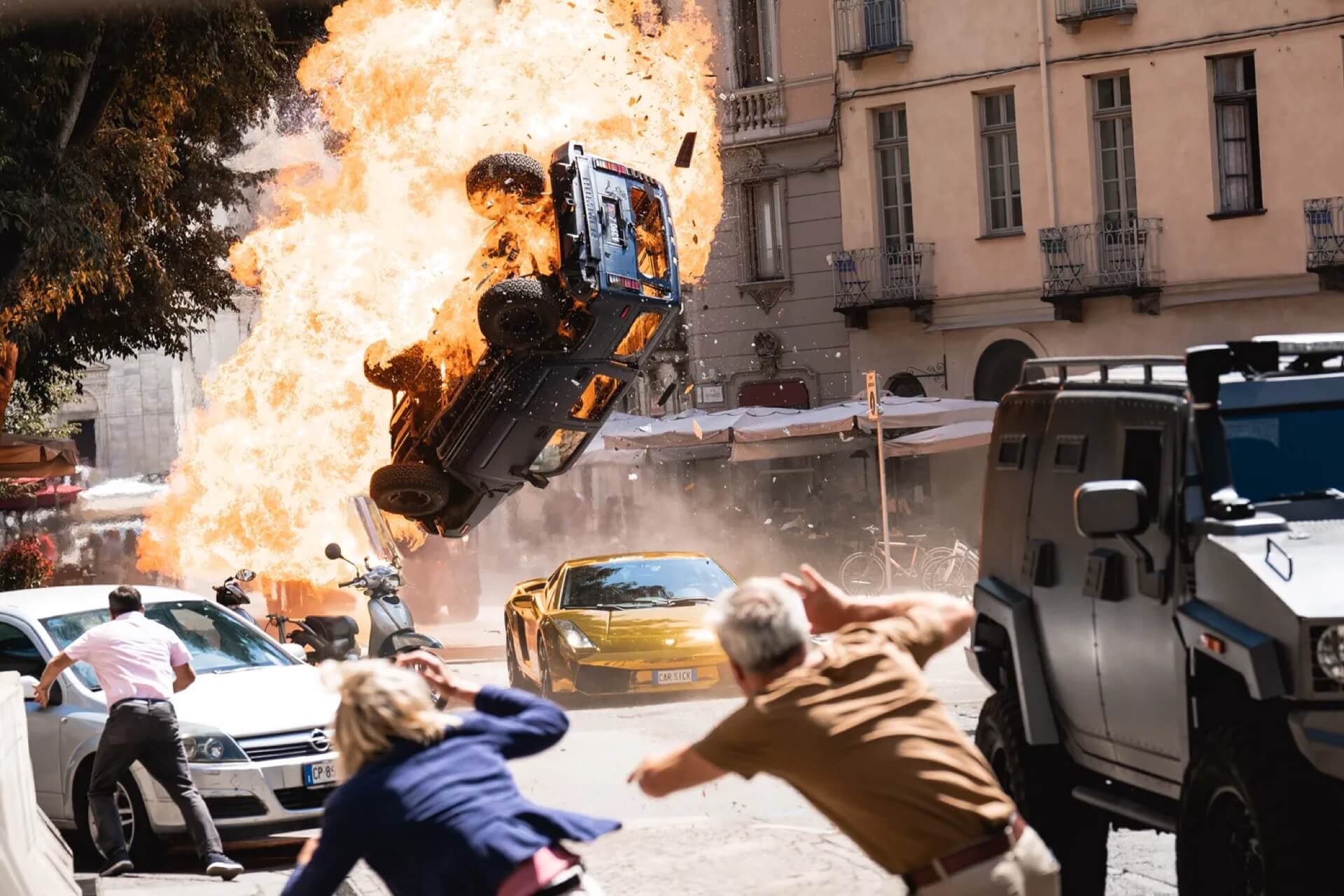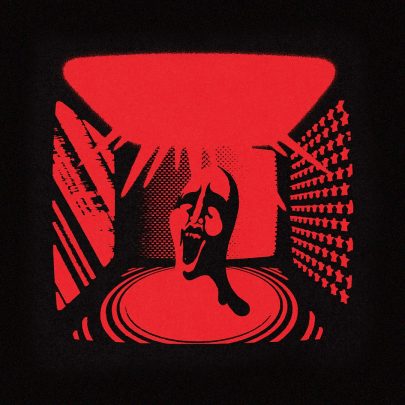Oct 1, 2023 Film & TV
It’s fair to say that July at the movies is going to be watched extremely closely by Hollywood prognosticators and critics alike, with a range of enormous titles landing in rapid succession. First, Harrison Ford takes one last spin with the hat, whip and pistol in Indiana Jones and the Dial of Destiny. Soon after, Tom Cruise returns to the big screen after the success of last year’s Top Gun: Maverick with the long-awaited and punctuation-heavy Mission: Impossible — Dead Reckoning Part One. Later in the month, we get both Christopher Nolan’s Oppenheimer and Greta Gerwig’s Barbie on the same day, in the canniest and best-publicised bit of counterprogramming in years. Being the height of summer in the United States, it’s one of the busiest and most significant periods of the release calendar for blockbuster movies. And, blessedly, there are no superhero movies to be seen for miles around.
By and large, the blockbuster cinema of 2023 has fared pretty well. Bright spots have abounded — Knock at the Cabin, Creed III, Dungeons & Dragons: Honor Among Thieves, Guardians of the Galaxy Vol. 3, Spider-Man: Across the Spider-Verse, John Wick: Chapter 4. But all have felt like outliers in their own ways, largely because they have the feeling of being made in defiance of the assembly-line rubric of the contemporary superhero movie, streaming television offering or Disney remake. Moreover, they stand out because of how old-fashioned they feel — ‘old-fashioned’ here meaning that they have a sense of stakes, strong visual sensibility, an emotional throughline, decent character work, the sense of an ending and so on. These are elements that have not been prized elsewhere, the symptom of a number of trends that have thoroughly taken root across Hollywood, for the worse. The ongoing thirst for intellectual property (or IP), as exemplified recently by Ant-Man and the Wasp: Quantumania, Shazam! Fury of the Gods, The Flash, The Little Mermaid and Transformers: Rise of the Beasts, is the most profound throughline you’ll find on the big screen. Even the year’s earlier bright spots are all based on existing, well-loved material or are sequels — save for M. Night Shyamalan’s Knock at the Cabin.
We find ourselves in a deeply unimaginative time in cinema, when our biggest films are constantly looking backward, chasing the greater highs their predecessors attained, but audiences are responding. Though there are rumblings about the end of the superhero era — or even the end of the Disney era — a quick look at the worldwide box office charts for 2023 tells a different story. There’s Ant-Man; there’s The Little Mermaid. Above them, Spider-Man, Guardians and, in the top spot, The Super Mario Bros. Movie.
This era of desperate incentivising of existing properties, of seeking ways to extend them ad nauseam, manifests in curious ways. You’ve probably noticed how everything seems to operate within a ‘universe’ now. The Marvel Cinematic Universe, the DC Universe, the Harry Potter Universe. The latest Transformers has just unveiled that it’s a part of the — pause for the biggest sigh imaginable — ‘Hasbro Universe’. This universal thinking has extended to the storytelling within the films themselves. One of the most head-scratchingly popular of all trends in the blockbuster of 2023 is the ‘multiverse’, in which characters can hop, skip and jump between worlds, interacting with different iterations of themselves. It’s clear why studios love the multiverse idea: it allows them to salvage scraps of fandom from older, dustier properties in order to maximise profits, and has manifested in the Marvel Universe several times over, the DC Universe with The Flash, the Spider-Verse films … hell, a multiverse superhero story just won Best Picture at the Oscars. The ultimate purpose of this, it would seem, is eliciting that initial shock of recognition, especially if it comes with overjoyed applause. The most cynical of the films in this vein is probably Spider-Man: No Way Home, which offers virtually nothing of value beyond those admittedly engaging, surreal moments in which Spider-Men from different eras interact. The Flash is not much better, however, and suffers in comparison to 2021’s No Way Home because at this point, we’ve come to expect that no property, no famous face, is safe from the maw of the nostalgia-baiting machine.
Directed by Andy Muschietti (of It and It Chapter Two fame), The Flash feels like a dispiriting coda for an entire era of superhero movies from the DC Universe, beginning with Zack Snyder’s solemn, mythic (and often bad) Superman films Man of Steel and Batman v Superman: Dawn of Justice. The entire franchise is getting a facelift courtesy of James Gunn, who delivered some of the best Marvel films in his Guardians of the Galaxy series, and also made a pretty great Suicide Squad movie. The Flash exists in a strange limbo, having taken a very long time to arrive on screens and with a star, Ezra Miller, against whom allegations of abuse have been made. These leave, at best, a bitter taste in the mouth. The Flash has the misfortune to follow just a couple of weeks behind Spider-Man: Across the Spider-Verse, the vastly more accomplished (though still imperfect) multiverse superhero film on the big screen at the moment. It’s also a great example of the level of compromise virtually every franchise film is obligated to reach in 2023.
This is a great shame because there are trace elements of a strong film in The Flash. Early on, Miller’s Barry Allen discovers he has the ability to move through space-time, and resolves to undo the pain of his past by slightly altering the events of the day his mother died. Miller, tragically, is actually pretty great in the role of Allen, particularly when he moves to an earlier point in time and plays against himself, with two different Flashes on screen at once — one young and reckless, the other tired and battle-worn. If The Flash had followed this thread down a path that didn’t lead to the appearance of a range of DC characters from history, including Michael Keaton’s Batman from the 1989 film and, later, a hideously ghoulish CGI recreation of Superman’s Christopher Reeve, there might have been a way for The Flash to pull off the emotional climax that it’s clearly aiming for. Another strange side-effect of the modern nostalgia drive: not even death will stop Hollywood from rolling a star out for the spectacle.
Then there’s Fast X. What a strange place the Fast & Furious series holds in the modern blockbuster sphere. It’s hard to imagine anyone, watching the original B-movie, a down-and-dirty riff on exploitation actioners of years past, would have been able to picture a world where F9 not only exists but was one of the highest-grossing films of 2021, and featured, among other death-defying stunts, a sequence in which a car was shot into space with Tyrese Gibson and Ludacris inside.
A friend and I have a recurring argument about this series. He believes that it will never again reach the grubby, working-class heights of the first two street-racing-focused entries, while I am a proponent of Fast Five as the series’ ultimate peak, a perfect cross-section of what the series had been and was to become. Now that we are 10 instalments deep, Fast Five serves as a symbolic anchor point, an uncanny alchemical mix of the sweaty, lurid aesthetic of the early Fast & Furious films and the daring gambit that aimed to revolutionise a series that by that point had become tired and destined for TV-movie doldrums. That gambit? Assemble a ragtag Ocean’s 11 from earlier films for a gleeful heist smash-’em-up, defined by an outrageous climactic sequence featuring a giant steel vault being pulled through the streets of Rio de Janeiro by a pair of souped-up muscle cars. Ironically, the film’s bringing-in of stars from earlier instalments, suggesting series throughlines that, prior to Fast Five, existed only on a theoretical plane, serves as an eerie precursor for our current, canon-obsessed blockbuster-sphere.
Perhaps it’s the proximity to the story of Fast Five that makes Fast X the most refreshing and successful entry in the series in years. The Fast movies are, by and large, soap operas, in which the characters are largely immovable figures with single defining traits — Vin Diesel’s Dominic Toretto being the stoic yet angelic centrepiece of it all. In Fast X, Dom meets his flipside (his Joker, if you will) in Jason Momoa’s Dante. Momoa is truly having the time of his life here, swinging for the fences as a functionally insane psychopath dead set on destroying Toretto’s beloved family. The behind- the-scenes of the Fast series has had no shortage of drama itself, including the much-publicised falling-out of Diesel and one-time-heavy Dwayne ‘The Rock’ Johnson. Less publicised but no less dispiriting was the departure of director Justin Lin, who oversaw the series’ epic run from Tokyo Drift to Fast & Furious 6. He’s replaced here by Louis Leterrier, whose filmography is hardly inspiring (though he did direct the first two highly entertaining Transporter films). Against all odds, Leterrier is a breath of fresh air for the series. Fast X, while certainly not ‘grounded’, is a lot more down to earth than the undoubted low points of this series, the ever-escalating Fate of the Furious and F9 (which, while seeing Lin return to the series, felt less like a Lin joint than ever, continuing the downward trend of a quantity-not-quality attitude of which the late-period Fast films have been a victim).
Mileage varies enormously with the Fast series. You need to be all-in on its many silly but deeply ingrained properties, from the gravity defiance of its many stunts to the fact that no one seems to be able to stay dead once they die. What sets the Fast series apart from other bombastic, enormous blockbusters of this modern era, however, is that it knows itself. The series is blatantly ridiculous, but it never apologises or makes excuses — this lack of self-consciousness is genuinely liberating if you’re willing to go along for the ride. Fast X is a far cry from the series’ heyday, but in a landscape of risk aversion and regurgitation, I’ll take what I can get.
–






